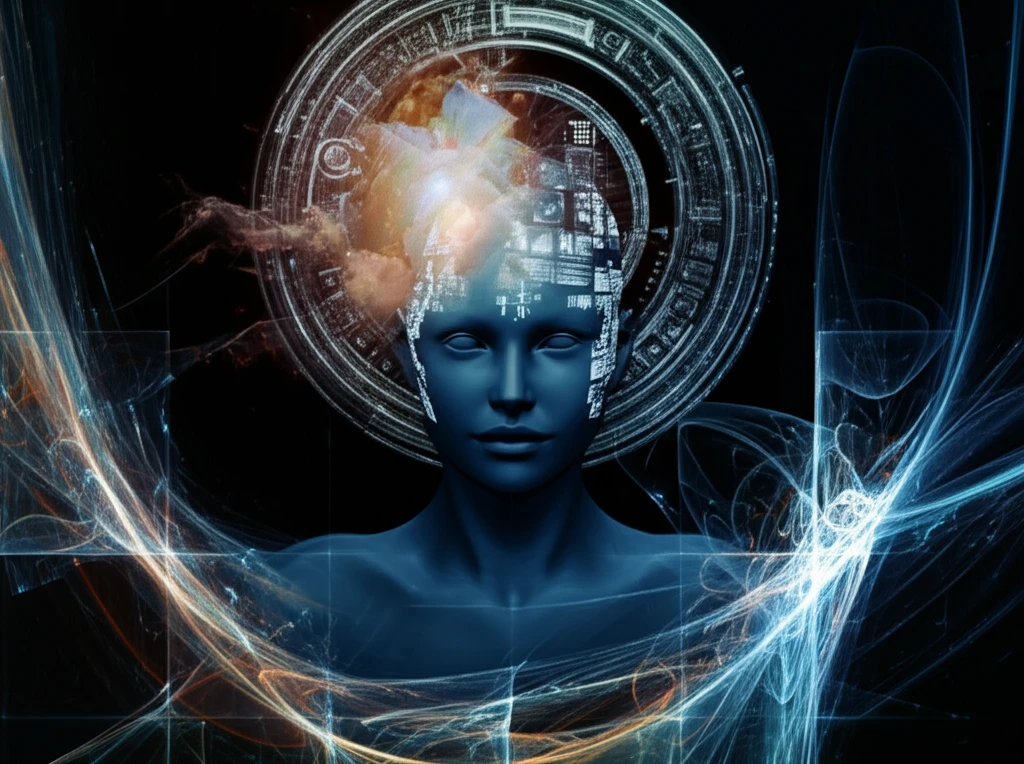
AI in Teamwork: Are We Becoming Unwitting Echoes of the Machine?
"New research reveals how AI assistants subtly influence team communication, even when we don't trust them. Are we at risk of losing our originality?"
In today's collaborative environments, artificial intelligence (AI) is increasingly integrated into our workflows, promising to enhance productivity and streamline processes. From virtual assistants to project management software, AI tools are designed to augment human capabilities and facilitate more efficient teamwork. But beneath the surface of enhanced efficiency lies a more subtle and potentially transformative influence: the impact of AI on how we communicate and collaborate with one another.
A recent study by researchers at Northeastern University has shed light on the surprising ways AI assistants can shape team dynamics, even when team members are skeptical of the AI's input. The research reveals that AI's presence can significantly affect what teams discuss, how they discuss it, and the alignment of their mental models. This raises important questions about the extent to which we are becoming unwitting echoes of the machine, adopting AI's language and priorities without fully realizing it.
As AI systems become more prevalent in our professional lives, it's crucial to understand their subtle influences on team dynamics. This article explores the key findings of the Northeastern University study, examining how AI assistants can shape our language, focus, and cognitive alignment within teams. We'll delve into the implications of these findings for collaboration and the future of human-AI interaction, offering insights into how we can harness the benefits of AI while preserving our originality and critical thinking.
The Subtle Takeover: How AI Shapes Our Conversations

The Northeastern University study, led by Josie Zvelebilova, Saiph Savage, and Christoph Riedl, investigated the impact of AI assistants on team communication and cognitive alignment. The researchers conducted a randomized controlled trial involving 20 human teams of 3-4 individuals, each paired with a voice-only AI assistant during a challenging puzzle task. The AI assistants were programmed with either a human- or robotic-sounding voice and provided either helpful or misleading information about the task.
- AI Shapes What Teams Discuss: Teams were significantly more likely to discuss objects mentioned by the AI assistant, regardless of whether the information was helpful or misleading. This suggests that AI can direct the focus of team attention, potentially steering discussions towards priorities it identifies.
- AI Influences How We Talk: Teams adopted language introduced by the AI, even for peripheral terms not directly related to the task. This "language adaptation" occurred despite doubts about the AI's competence, suggesting an automatic process of alignment.
- AI Affects Mental Model Alignment: Teams exhibited varying degrees of alignment in their mental models, depending on the AI's quality and humanness. The "worst" AI (low quality and robotic sounding) surprisingly had a positive effect on cognitive alignment, potentially by strengthening collective identity among human teammates.
Preserving Originality in the Age of AI
As AI systems become increasingly integrated into our professional lives, it's crucial to understand their subtle influences on team dynamics. By recognizing how AI can shape our language, focus, and cognitive alignment, we can take steps to preserve our originality and critical thinking. This includes fostering a culture of awareness, encouraging diverse perspectives, and prioritizing human judgment in decision-making processes. Only then can we harness the benefits of AI while safeguarding our intellectual independence and collaborative spirit.
